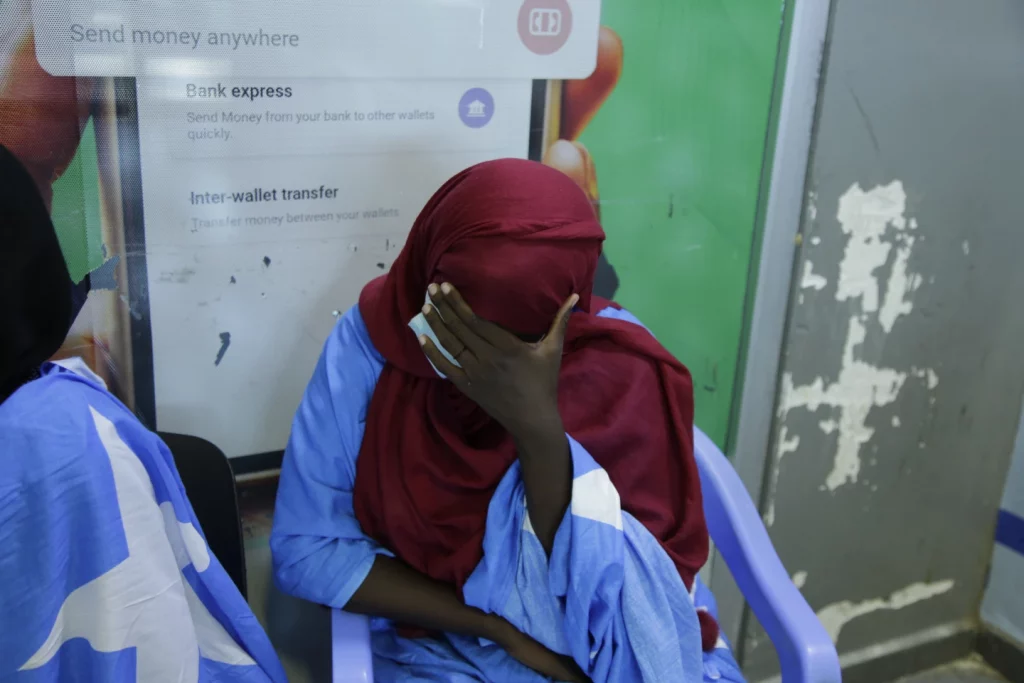Idil Abdullahi Goley’s journey to Europe began with a $6,500 payment to smugglers in Somalia. Her hopes of a better life ended in tragedy as she watched fellow migrants die at sea. The harrowing incident occurred last month off the coast of Madagascar, where 25 people lost their lives while attempting to reach Europe. Goley was one of 48 survivors rescued from the Indian Ocean, and her story sheds light on the dangerous routes that many African migrants take in their search for a better future.
Goley, 28, spoke to The Associated Press about her journey, which began in Mogadishu, Somalia’s capital. Like many others, she decided to take the risk of traveling to Europe after facing extreme challenges in her home country, including attacks from extremist groups and the devastation caused by climate shocks. She raised the money for the smuggler’s fee through her small teashop business, with help from her brother and mother. Her goal was to reach Europe, repay her family, and create a better life for herself and her children.
Her journey took her first to Nairobi, Kenya, and then to Mombasa, a port city where she and other migrants boarded small boats bound for Mayotte, a French island territory in the Indian Ocean. The island is one of the poorest regions in the European Union, but it is a popular destination for migrants hoping to claim asylum. After three days at sea, the group’s journey turned into a nightmare. The boats’ engines began to fail, and the smugglers left them stranded without food or water. The migrants were forced to catch fish and collect rainwater in an attempt to survive.
As the days passed, the situation grew worse. Goley described the heartbreaking moments when she watched an infant die right in front of her, despite her attempts to save the child. “We couldn’t hold onto her body for long and had to throw it into the sea to prevent it from decomposing,” she said. As the group faced hunger, thirst, and unbearable heat, two of Goley’s friends also died. One of them screamed for help before passing away, reciting the Muslim profession of faith, the Shahada, as she died. Goley said the image of her friend’s suffering would haunt her forever.
After 13 days of struggling to survive, a fishing boat appeared on the horizon. The survivors managed to flag it down and offered the fishermen $100 for their rescue. They were taken to a sports facility in Nosy Be, a northern region of Madagascar, where they were later repatriated to Somalia. Goley’s family had feared the worst. Her mother, unable to eat and deeply worried, had lost 44 pounds during the weeks of uncertainty. When Goley finally returned home, her mother could hardly believe it until she heard her daughter’s voice and saw her in person.
Despite the trauma of her ordeal, Goley is determined to try again. She told The Associated Press that the hardships in Somalia have not changed, and she believes that even if the journey leads her to prison, she would still find a better life than the one she has now. “I would still find a better life than the one I have here,” she said. Her mother, however, fears that Goley may not return if she tries again.
Other survivors of the journey are also struggling with the emotional aftermath of the tragedy. Ahmed Hussein Mahadalle, 26, witnessed the death of his sister, Hanan, 21, during the journey. He described the pain of losing her as indescribable. His other sister, Haboon Hussein Mahadalle, expressed gratitude for her brother’s safe return but also acknowledged his plans to try again. “Hanan was courageous and vigilant. She met her fate with grace,” Haboon said, tearfully. “They say good people don’t stay long, and my sister embodied all the qualities I can’t begin to summarize.

